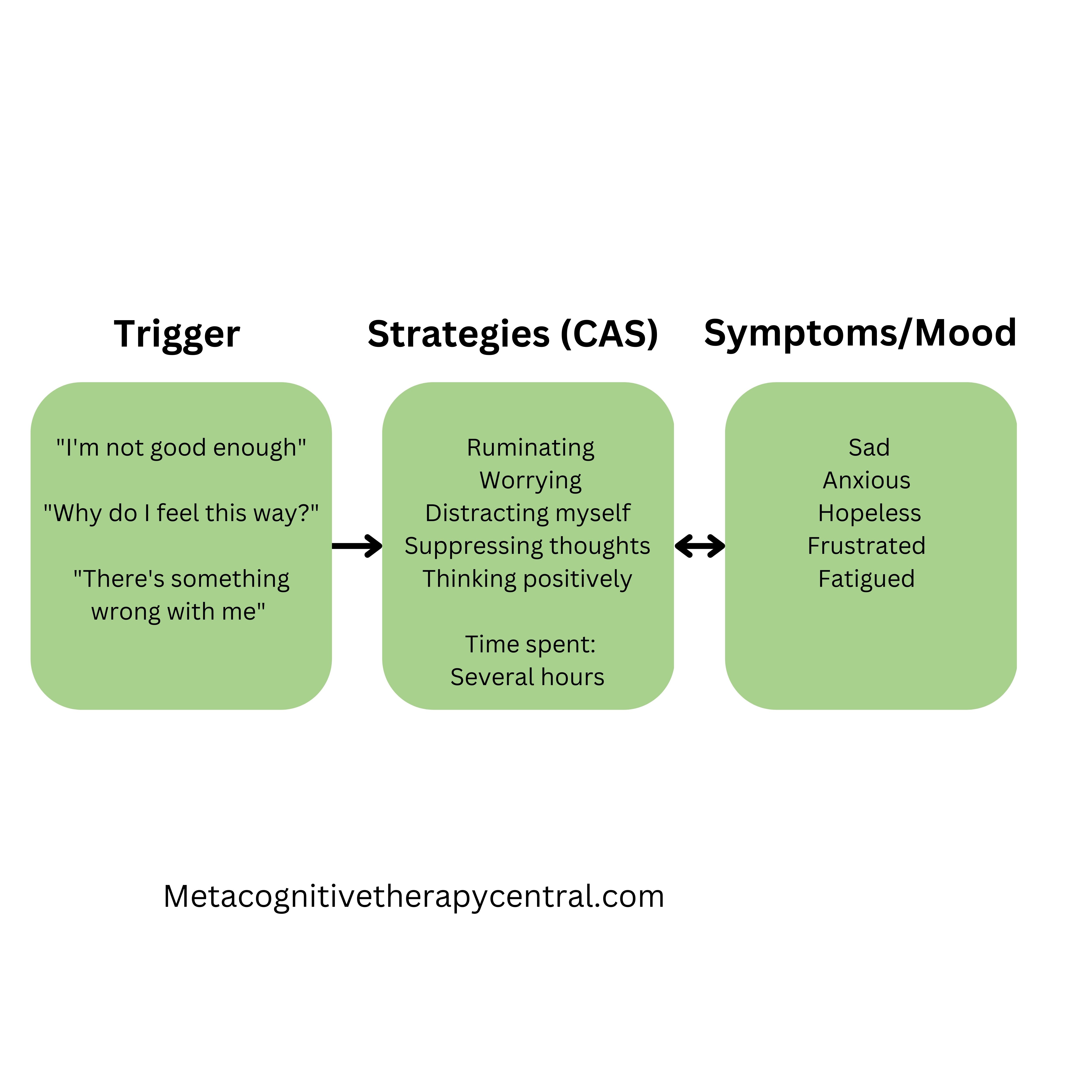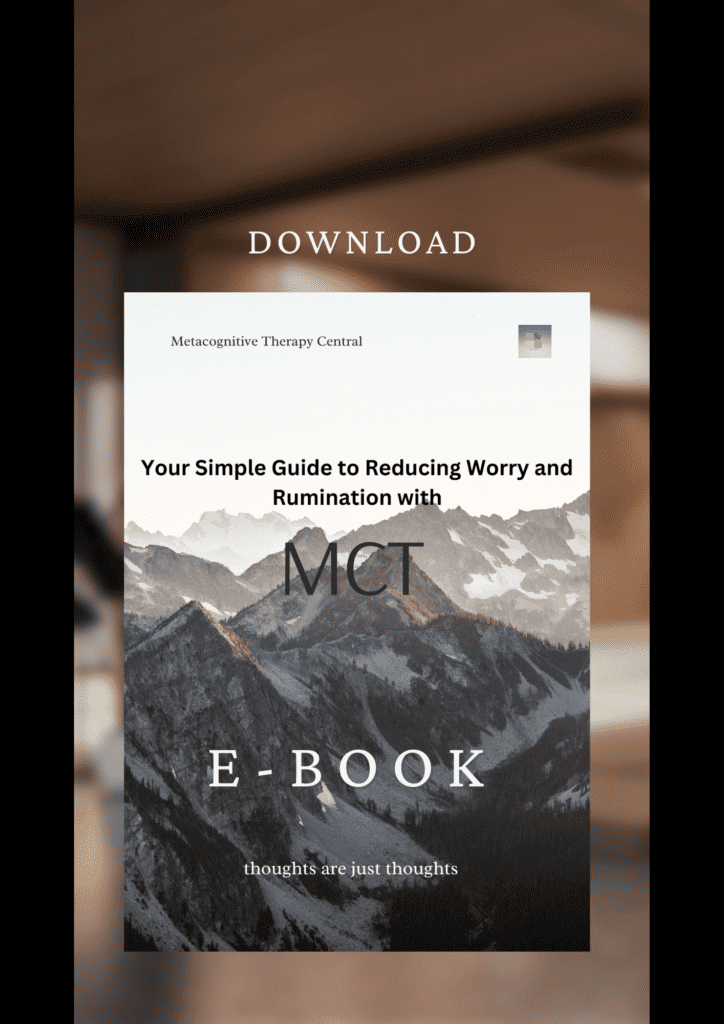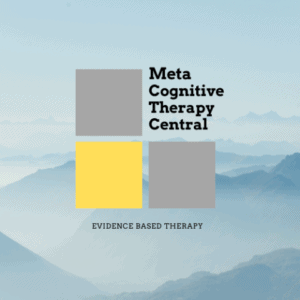

By Michelle Lindhardt, Clinical Psychologist, M.Sc.
In my work as an MCT therapist, I see many clients who suffer from OCD, anxiety, and depression. All of them struggle with intrusive and ruminative thoughts and they spend much of their time analyzing their thoughts or trying to get rid of them.
Although it is not possible to directly get rid of intrusive thoughts, it is possible to diminish overthinking by detaching from them. This is achieved by postponing worrying about them and only analyzing their meaning for a fixed period each day.
You can definitely learn to spend less time worrying and analyzing negative thoughts. This is one of the most important lessons my clients learn in my therapy. But it is also important for them to learn about the true nature of thoughts. Are intrusive thoughts really that bad?
According to MCT, coping strategies such as worrying, ruminating, and analyzing maintain, and in some cases, exacerbate feelings of psychological distress.
How you can deal with intrusive and ruminating thoughts?
– Try to allow the negative intrusive thoughts to occur and simply let them be. Instruct yourself to leave the thoughts alone and continue your day. Don’t try to do anything to get rid of them.
– Postpone your rumination or worry till later in the day. Schedule a brief worry/rumination time for yourself where you can deal with your negative thoughts (e.g., 20-30 minutes during the afternoon). However, you will probably notice that many of the thoughts will have lost meaning at this time and you won’t find it necessary to engage with them.
“Negative thoughts are inevitable and a normal part of life”
Why does it feel reprehensible to experience negative thoughts?
We live in a society where there’s a strong focus on positivity and happiness. People are often taught to look on the bright side of life and push negative thoughts away to avoid any form of negative input. In addition, life poses numerous challenges that can make us doubt ourselves. Such challenges can be related to education, work, love, friendship, and family.
It’s easy to feel that you’re not good enough, that you should perform better, be a better partner, friend, parent, child, etc. When we notice negative thoughts, we might start to analyze them and engage in a long negative self-evaluation process. However, what we forget to keep in mind is that negative thoughts are inevitable and a normal part of life.
It’s normal to experience negative and intrusive thoughts
Research shows that our brains can produce up to 60-70,000 thoughts daily. Some of these thoughts will be neutral, some will be positive, and some will be more negative in valence.
Usually, when we experience either neutral or positive thoughts, we don’t dwell much on them or try to make sense of why these thoughts occur. We just allow them to exist and continue our day. However, when we experience negative thoughts, they can be highly triggering and difficult to let go of.
Nevertheless, negative thoughts are completely normal. Everyone gets trigger thoughts from time to time. According to the theory behind metacognitive therapy, it is not the mere existence of these thoughts that cause psychological distress, but rather how we respond to them.
Typically, people use a range of strategies to deal with such thoughts as they prompt negative feelings or symptoms (e.g., anxiety, stress, fatigue, sadness). For instance, one might start to push the thoughts away, distract oneself, or engage in other tasks to get the thoughts more at a distance. One might also go deeper into the thoughts by worrying, ruminating, or analyzing one’s situation.
People typically have the best intentions when using these coping strategies – they just want to feel better and get rid of the thoughts. Nonetheless, by engaging in all these strategies they maintain and exacerbate their distress. An example of this process is illustrated in the model below.

In this example, a person might notice a trigger thought (“I’m not good enough”) and start to ruminate. It might feel relieving at first, but the rumination causes the person to feel sad, anxious, and doubtful. In an attempt to try to eliminate the trigger thoughts, the person then tries to distract themselves and suppress the thoughts.
This might work briefly, but then it backfires and causes them to ruminate even more and start to worry about the future. In the end, the person might have spent hours engaging in these strategies. As a result, it becomes a vicious spiral in which the distress is maintained and plausibly exacerbated.

Free MCT E-Book
Organize your MCT exercises and learn how to use them to reduce worry and rumination. Download free e-book here.

The mind has the ability to regulate itself
According to the theory behind metacognitive therapy, the mind has the ability to regulate itself. Just as our body has the ability to recover from a physical wound, our mind can recover from mental illness if we just allow this process to commence. This self-regulation process will however not occur, if we start to engage in a lot of maladaptive coping strategies (e.g., ruminating, worrying, avoiding, monitoring our mood, etc).
The best strategy to use is therefore to do as little as possible with the negative thoughts, images, and feelings that pop up. When we don’t grab them, we allow the mind to filter them out and they will take up less space.
Metacognitive therapy is an effective treatment that specifically targets overthinking. In MCT, you’ll learn to passively observe intrusive thoughts and reduce your rumination. By doing so, you’ll allow the self-regulation process to commence, and you’ll notice that the ruminating thoughts will occupy less space in your mind.
Self-regulation is the mind’s ability to regulate thoughts and feelings without our active intervention
Summary
- Negative thoughts are inevitable and a normal part of life. We cannot decide which thoughts pop up, but we can learn to control what we do with them.
- Maladaptive coping strategies such as rumination, worry, and thought suppression maintain, and in some cases, exacerbate psychological distress.
- The mind can regulate itself, if we just let it do so.
- Metacognitive therapy can effectively teach you to let go of intrusive thoughts and reduce rumination.
References
- Capobianco, L., & Nordahl, H. (2021). A brief history of metacognitive therapy: From cognitive science to clinical practice. Cognitive and Behavioral Practice. https://doi.org/10.1016/j.cbpra.2021.11.002
- Wells, A., & Matthews, G. (1994). Attention and emotion: A clinical perspective. Lawrence Erlbaum Associates, Inc.
- Wells, A., & Matthews, G. (1996). Modelling cognition in emotional disorder: The S-REF model. Behaviour Research and Therapy, 34(11-12), 881–888. https://doi.org/10.1016/S0005-7967(96)00050-2
- Wells, A., (2009). Metacognitive therapy for anxiety and depression. Guilford press.
- Wells, A., Capobianco, L., Matthews, G., and Nordahl, H. M. (2020) Editorial: Metacognitive Therapy: Science and Practice of a Paradigm. Front. Psychol. 11:576210. doi: 10.3389/fpsyg.2020.576210
- Photo by Abishek
- Photo by Ben White

